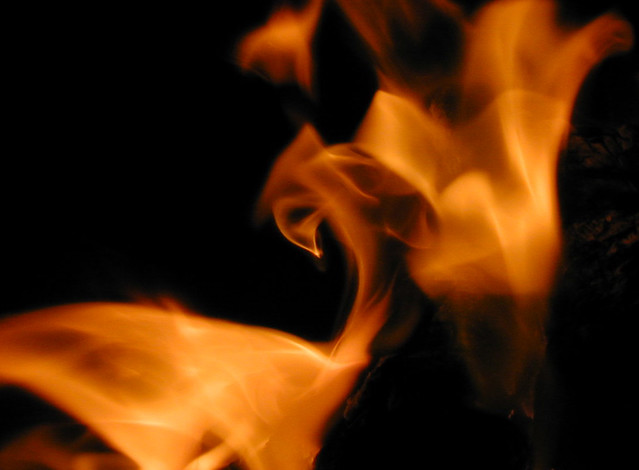While locating the nearest staircase and exit may not be at the top of your agenda on move-in day, it probably should be. According to the National Fire Protection Association, there are approximately 3,800 university housing fires each year, which factors out to a rate of about one fire per university campus in the United States. While this figure may seem shocking, it is a reality that you should prepare for when moving into any new residence. After moving into an off-campus apartment my sophomore year of college, I experienced two fires in the basement of my building, and while no damages were incurred either time to my unit, those living in the garden-level units did face damages. Below is a list of ways to stay safe and help to prevent fires in your dormitory or apartment building.
Preparing for Fire:
Scout your exit routes
When moving into a dormitory or apartment be sure to check out your nearest stairwell and exterior exit options (remember to never use an elevator if there is a fire!). Doing this ahead of time will help to keep you calm and collected in case you hear the fire alarm go off. While many university residences conduct fire drills, never assume a fire alarm is a drill! This is very dangerous; you should always exit a building immediately if you hear the fire alarm. If you live in a building with a fire escape, do not climb out in advance of a fire. Fire escapes should be used as a “worst case scenario” alternative, since they should only be used if you cannot exit the building safely from another route. Fire escapes are not intended to regularly hold weight and therefore going out on it without a fire present could be risky. I would advise one to walk past your fire escape from street-level to familiarize yourself with its construction and mechanism in case you do ever need to use it.
Additionally, check out the fire safety card in your room or apartment. Many dorm rooms and apartments contain an image of your building with a suggested exit route in case of fire.
Form good habits
When the fire alarm goes off, you will get the instinct to leave you apartment as quickly as possible, which is great. However, the downside of this is that it is easy to to forget to bring valuables you may need, such as your keys and wallet. Forming habits such as leaving your bag and a jacket by the front door make it easy for you to make a swift exit when the fire alarm sounds without risking having to call a locksmith afterwards because you forgot to bring your keys with you.
Preventing Fires:
Be mindful of your cooking
The National Fire Protection Association reports that cooking equipment was involved in over 75% of campus fires. An easy way to avoid this happening is to always monitor your cooking equipment when it is in use, and to be sure to unplug it when you are finished with it. It is easy to become distracted when cooking and with a busy schedule, forgetting about your cooking entirely while becoming ensconced in other tasks is an all-too-common norm. However, by staying with your cooking equipment while it is on, you can ensure that you will be operating it safely. Furthermore, be sure to always unplug your small appliances when you are finished with them. This is a great and simple way to prevent fires.
Follow the rules
Many dormitories have very strict rules about use of small appliances and candles in dorm rooms. While it may be tempting to light a candle in your dorm room–don’t. According to the National Fire Protection Association, 62% of the civilian deaths and 26% of the civilian injuries which occurred due to dorm fires were from fires which began in bedrooms. While dormitory regulations may seem annoying, they are in place to keep you safe. Also, be sure there is a smoke detector in your dorm room and if there isn’t, I would recommend consulting with your RA regarding your school’s fire safety precautions.
Also keep in mind to never tamper with any smoke detector or fire alarm. While it can be annoying to live with an overly sensitive smoke detector, it is much preferred to the alternative: not realizing your apartment is on fire until it is too late.
Keep balance in mind
Many fires can be prevented with common sense. Keep in mind how you are using the outlets in your dorm and apartment, and try to keep them balanced with electronics. Additionally, pay special attention to any extension cords and power strips that you have, as these pose fire risks. Try, if possible, to never lay an extension cord over a rug or carpet as they can heat up, and also try to unplug your electronics when not in use.
Like anything else, preparation is the key for ensuring that you will handle a fire smoothly. Renters insurance is a great tool in being prepared as it helps provide protection for both your belongings and your living space. You can learn more about the value of renters insurance for college students here.
Photo credit: matthewvenn





